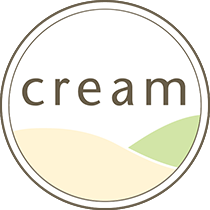Scribe Winery
VISIT THIS PRODUCER'S WEBSITE
LOCATE ON GOOGLE MAPS
VISIT IMPORTER'S WEBSITE
Country of Origin: USA
Location: Sonoma
People: Adam & Andrew Mariani, Owners & Winemakers | Kelly Mariani, Culinary Director
Viticulture: Practicing Organic
Items
Scribe Winery has been captivating the wine world since its inception in 2009. Founded and run by by fourth-generation farmers Adam and Andrew Mariani, Scribe produces vibrant wines that showcase the unique terroir of Northern California, particularly Sonoma. Raised in Winters, California, where their family farmed walnuts and almonds, the Mariani brothers developed a passion for agriculture. After gaining winemaking experience in Europe, they returned to the U.S. to establish their own winery in Carneros.
In 2007, they acquired a 256-acre former turkey farm just three miles east of the Sonoma Town Square. Neighboring the historic Gundlach Bundschu estate, their property has a rich winemaking history dating back to 1857, when the Dresel family planted the first Riesling and Sylvaner in the U.S. The brothers undertook a significant restoration of the estate, clearing invasive plants and debris while planting new vines of Pinot Noir, Chardonnay, Mission, Riesling, and Sylvaner to honor the estate’s legacy. Of the 256 acres; only 55 are devoted to vines. 75% of the remaining land is preserved for “Forever Wild” conservation. The rest is dedicated to a small fruit orchard, olive grove, vegetable and flower gardens, honeybees, and chickens. They also lease a vineyard in Napa Valley on Atlas Peak.
The volcanic, mineral-rich soils and cool-climate conditions of Sonoma provide an ideal environment for Pinot Noir and Chardonnay. Scribe’s property sits at the convergence of the Carneros, Sonoma Valley, and Napa Valley appellations, creating a unique microclimate shaped by the marine influence of San Pablo Bay, winds from the Petaluma Gap, and the steep terrain of Arrowhead Mountain.
The Mariani brothers are committed to sustainable viticulture and believe that the best wines come from a healthy symbiosis between man and nature. Their “Forever Wild Farming” philosophy emphasizes biodiversity and ecological balance, allowing beneficial insects and birds to thrive and reducing the need for pesticides and fertilizers. Scribe employs wild yeast for all fermentations, ensuring each bottle is a true expression of its place of origin.
Today, Andrew and Adam Mariani manage the winemaking, while their sister Kelly leads the Scribe kitchen. Kelly, who joined the winery in 2016 before the completion of the kitchen remodel, takes the same approach in the kitchen as her brothers do in the vineyards, allowing time and nature to guide her creations. Her food is entirely farm-to-table. With an impressive resume, Kelly studied at the renowned Ballymaloe Cookery School in Ireland and at Slow Food’s University of Gastronomic Sciences in Italy. She also cooked at the American Academy in Rome and worked with Alice Waters at Chez Panisse.
Media Links
Refinery29: Tasting Notes - Meet Cali's Hippest Winemakers
Huffington Post: Andrew Mariani on San Francisco Wine, Restaurants and Fog


